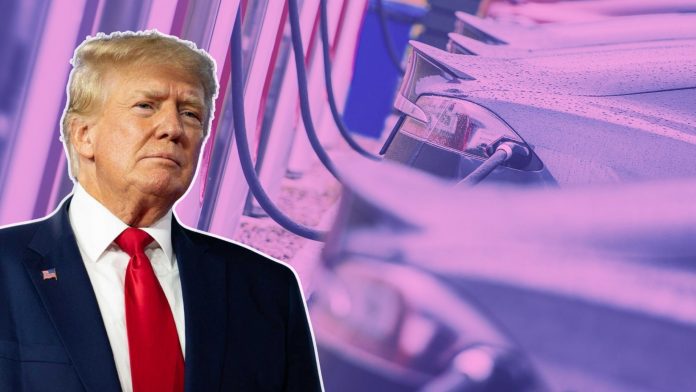The auto industry has called on President-elect Donald Trump to preserve the $7,500 electric vehicle (EV) tax credit, a key component of President Joe Biden’s policies to promote EV adoption and ensure the U.S. remains competitive globally.
In a letter sent on November 14, 2024, the Alliance for Automotive Innovation — representing major automakers including Ford, General Motors, and Stellantis — urged Trump to maintain incentives for both EV buyers and manufacturers. The group argues that these policies contribute to creating “good jobs” while fostering industry growth.
In addition, the Alliance highlighted the importance of “stability and predictability” in automotive emissions standards, suggesting that Trump focuses on “reasonable and achievable” federal and state regulations that align with current market realities. However, this call for stability could clash with Trump’s campaign promises to undo policies he views as restrictive, including the EV tax credit and newly finalized EPA rules requiring automakers to cut carbon emissions by 2032. These emissions rules primarily aim to increase the sale of EVs, a move Trump has criticized, promising to roll back such regulations once in office.
John Bozzella, president and CEO of the Alliance for Automotive Innovation, did not outright oppose Biden’s stricter tailpipe regulations but acknowledged that some targets may be difficult to achieve. He has since asked the incoming administration to consider adjustments that would accommodate market conditions and allow consumers to purchase vehicles that suit their needs.
The letter also touched on the regulation of autonomous vehicles (AVs), with Bozzella advocating for a federal framework to accelerate their deployment. The industry sees this as essential to keeping pace with China’s progress in AV technology, and it is widely believed that Tesla CEO Elon Musk would benefit from such a framework, especially with plans for steering wheel-free Cybercabs by 2026.
As the transition to a new administration looms, the auto industry appears to be treading cautiously, hoping to strike a balance between retaining beneficial policies and addressing concerns over the pace and feasibility of regulatory changes. The letter to Trump reflects an industry eager for stability, while also signaling openness to some compromises on emissions and EV incentives.



